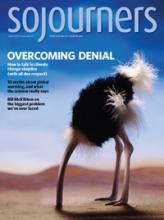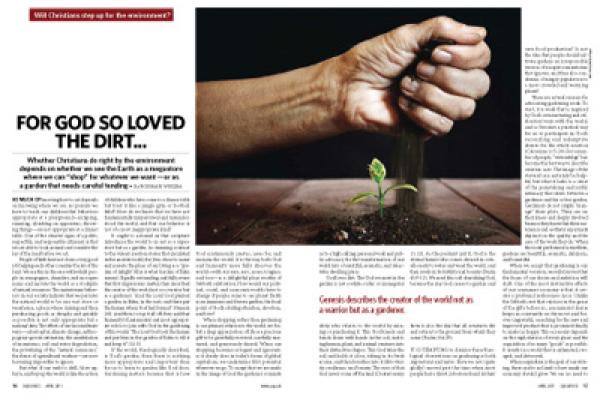So much of knowing how to act depends on knowing where we are. As parents we have to teach our children that behaviors appropriate at a playground -- jumping, running, climbing an apparatus, throwing things -- are not appropriate at a dinner table. One of the clearest signs of a polite, respectful, and responsible citizenry is that we are able to look around and consider the lay of the land before we act.
People of faith have not done a very good job helping each other consider the lay of the land. We see this in the ease with which people in synagogues, churches, and mosques name and narrate the world as a stockpile of natural resources. The mainstream behaviors in our society indicate that we perceive the natural world to be one vast store or warehouse, a place where mining and then purchasing goods as cheaply and quickly as possible is not only appropriate but a national duty. The effects of our inconsiderate ways -- catastrophic climate change, anthropogenic species extinction, the annihilation of mountains, soil and water degradation, the privatizing of the "natural commons," the abuse of agricultural workers -- are now becoming impossible to ignore.
But what if our rush to drill, blow up, burn, and buy up the world is like the action of children who have come to a dinner table but treat it like a jungle gym or football field? How do we know that we have not fundamentally misperceived and misunderstood the world, and that our behavior is not of a most inappropriate kind?
Read the Full Article

